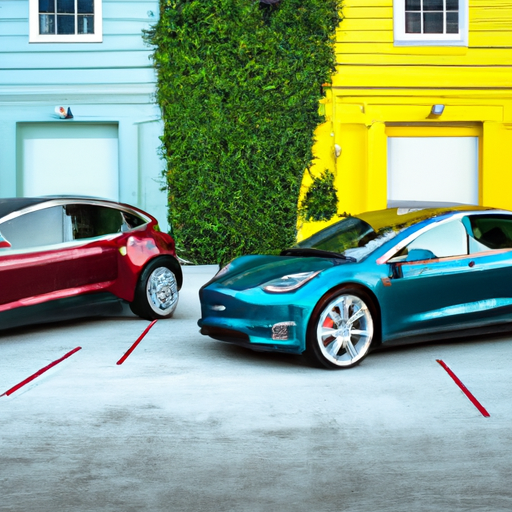In a new move in the ongoing saga of electric vehicle (EV) taxation, the Australian High Court has struck down an EV road user tax based on the distance covered. While the original decision came from the Victorian state government in July 2021, don’t start celebrating just yet: a group of Australian states and territories look set to challenge it, alluding to their plans for a similar tax in the future. The ruling reportedly surprised New South Wales Premier Chris Minns, while Victoria’s Treasurer Tim Pallas dubbed it “very contentious”.
The Tussle over Victoria’s Road User Tax (RUT)
The legal battle against the Road User Tax (RUT) commenced in September 2021. Initially, it looked like a hopeless battle, with Victoria having the backing of other states and territories to defend the tax. However, the table turned midway when the federal government sided with the plaintiffs. This move spurred countless debates and comments across EV-focused Facebook pages, with EV owners offering support while critics slammed them as self-righteous free riders.
Divided Opinions on Road User Tax (RUT)
During our regular “Coffee, Cake and EV” meetups, the RUT often stirred intense discussions. Opinions varied from opponents of any form of RUT to those who perceived it as necessary; others remained indifferent.
Understanding the Underpinnings of Australia’s Taxation System
The Guardian outlines Australia’s taxation framework as one marred with vertical fiscal imbalance — a situation in which the federal government is responsible for most revenue collection and then disburses the funds to states for their spending. When the tax was initially enforced, a representative from the Victoria government argued that the road-user tax for zero and low-emission vehicles is a sustainable approach to secure revenue for infrastructure investments.
Why the High Court Rejected Victoria’s Road User Tax
The High Court’s decision to repeal the tax was not influenced by the environmental or health benefits of EVs. Instead, the Court made the decision based on a legal stipulation. The Court ruled the Victorian EV road user tax as an excise, which only the federal government has the right to impose. My suspicion is that the federal government may seize this opportunity to introduce its version of the road user tax. Another plausible scenario could be the states resorting to alternative measures to tax EV owners — perhaps through a hike in registration payments. So, keep an eye on future developments!
Is Road User Tax Economically Friendly for EV Drivers?
Is the road user tax really as bad as it is portrayed? When I saw the initial tax rate set at 2.5 cents per km (which later increased to 2.8 cents per km), I found it quite reasonable. Despite the tax, EV drivers still end up spending less compared to conventional fossil fuel vehicles. It’s common knowledge that Australians are heavily taxed, with taxes constituting an estimated 30% of petrol and diesel costs. Hence, even with a modest road user tax, I’d still end up saving money by driving electric.
An Overview of the Road User Tax Rates
According to The Guardian, electric and hydrogen vehicle owners were charged 2.8c per kilometer per year, while plug-in hybrid vehicle owners were charged 2.3c per kilometer. Interestingly, hybrid vehicles weren’t subjected to the tax, although they are incredibly fuel-efficient and constitute a significant proportion of the vehicles on the road.
The Debate on Fairness of the Road User Tax
Is it fair to impose a road user tax on EVs? Should all drivers pay for the maintenance of the roads? While most would agree to the principle of shared responsibility, some argue that the health benefits resulting from EVs should offset the lack of fossil fuel tax paid by EV drivers. Others query whether EVs, due to their weight, cause more damage to the roads.
Impacts of Road User Tax on EV Sales
Could a road user tax deter potential buyers from purchasing EVs? A 2021 survey by the Australia Institute suggested that a significant majority of South Australians would be less inclined to switch to an EV if a Road User Charge (RUC) was implemented. Notably, this feedback was given before South Australia introduced its RUC, which has since been abolished. While EV sales in Victoria seemingly continued to rise despite the RUC, there were some public displays of discontent regarding the tax. In a few cases, tax objectors even had their vehicle registrations cancelled for refusing to submit their mileage to the government.
Continued Growth in EV Penetration Despite Tax Challenges
The continuous growth in Australia’s EV market, which has jumped from 0.8% penetration in 2020 to an average of 8% this year, indicates that the adjustments in incentives, spreading fear, uncertainty, and doubt (FUD), and changing taxes have done little to halt the EV revolution. As with the introduction of any new technology, it is expected that governments will need to reassess their taxation strategies.
Future of Road User Tax
Given the global trend and the need for sustainable roadway maintenance funding, it seems inevitable that a road user tax will be enforced sooner or later. Even the lawyer who led the charge against the tax suggested that it wasn’t the right time to start taxing EVs “yet“. The key here is to ensure the imposed tax is minimal and fair across all road users. Despite the High Court’s ruling to dismantle Victoria’s RUT on a slim majority (4 – 3), there’s every likelihood that the decision will be contested in the future.
























